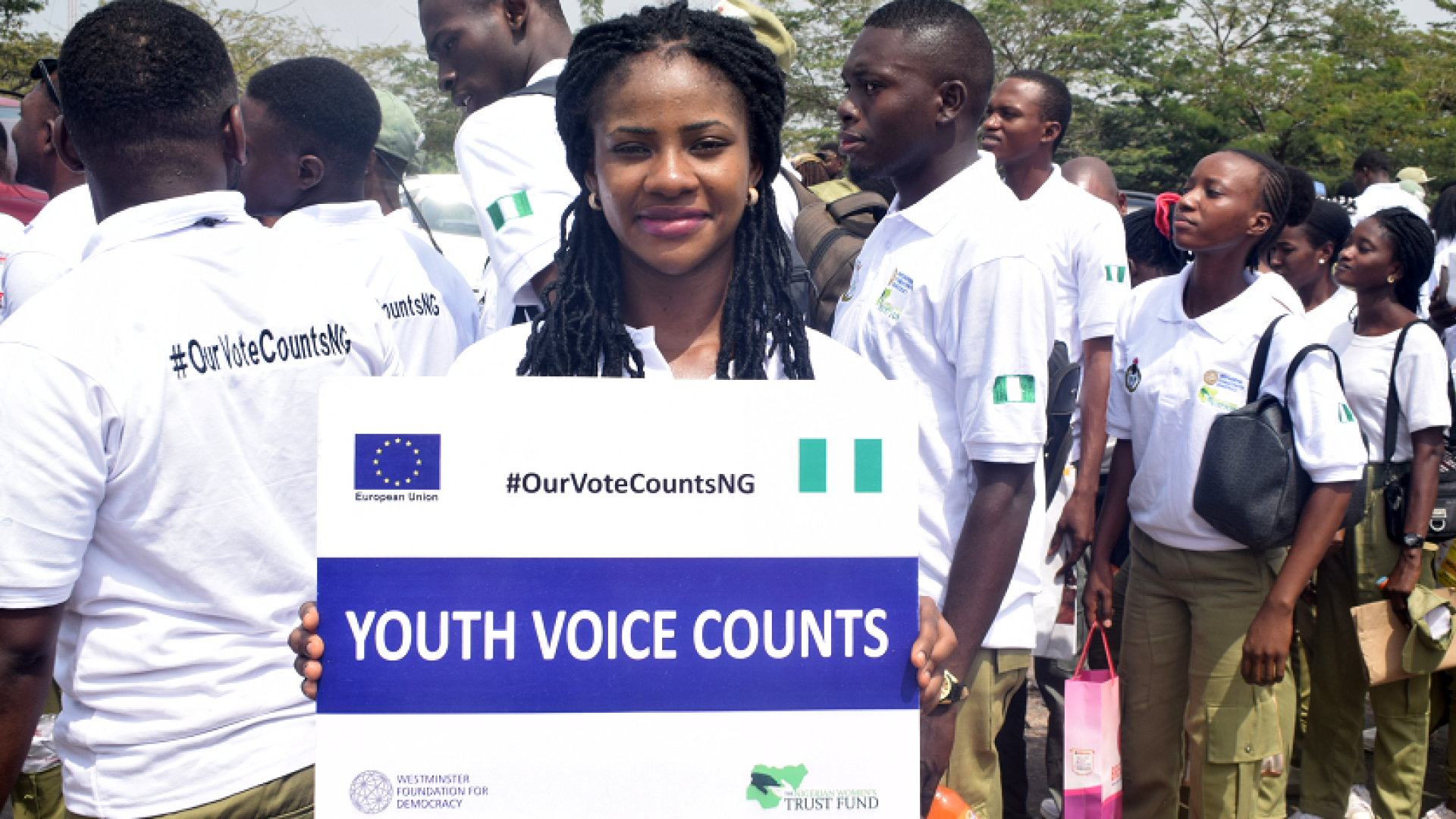Promoting peaceful and inclusive elections in Nigeria

2019 is a memorable year for Nigerians as it marks 20 years since the end of military rule. And the sixth general election – which took place on 23 February – is an opportunity to consolidate democratic governance in the country.
In the run up to the election, Westminster Foundation for Democracy, in partnership with the Nigerian Women Trust Fund (NWTF) and funded by the EU, informed underrepresented groups like women, young people and persons with disabilities about their rights before and on polling day.
Nigeria has a very young population. A majority of eligible voters in Africa’s most populous nation are now 35 or young – a demographic that will help double the continent’s population by 2050. At least 14 million young voters have registered since 2017.
Know your rights: engaging marginalised groups in the election
The programme, Support to Democratic Governance in Nigeria (EU-SDGN), used social media and the #OurVoteCountsNG platform, to target messages specific to women, youths and persons with disability and encourage them to actively participate in the electoral process.
Over 65% of Nigerians are using smartphones with internet access and according to the National Communication Commission 89% of internet users regularly access social media.
Materials with taglines such as ‘VOTE not FIGHT’, ‘Don’t Sell your Vote’, ‘No Electoral Violence’, and that explained how to collect the Permanent Voters Card (PVC) and voting procedure were shared. As well as short animations to illustrate important electoral messages.
This was combined with more traditional outreach activities in local communities. Through WFD’s engagement, community groups were established in three states, Federal Capital Territory, Imo and Osun State, to help show voters why their vote matters.
A peer-to-peer approach was used with young people engaging other youths, while women reached out to fellow women. This meant messages specific to each group could be communicated easily, effectively and in a personalised way.
Equipped with information and communication materials such as t-shirts, fliers, posters, handbooks and training manuals, Corps members used a range of methods to get relevant messages across: mainly that they can make their vote count by registering, collecting their permanent voter card, voting for the candidates of their choice and refusing to sell their votes.
Similarly, the Nigerian Women Trust Fund (NWTF) working with WFD trained local women who mobilised and encouraged other women in their communities on active participation in the elections.
Combatting media disinformation
WFD also collaborated with the Independent National Electoral Commission (INEC), Nigeria’s electoral management body, to engage media and publicity officials on fact checking and tracking of fake news. The ability of INEC staff to monitor and filter information was enhanced, as they were exposed to practical techniques, methodologies and tools used for fact-checking and identification of fake news. The workshop was helped to avoid the distribution of misinformation which could lead to violence.
On election day, the NWTF together with WFD held a Gender and Election Watch Situation room, which monitored the participation of women during the election. An all-female election observation group, the first of its kind during a general election, was deployed to the Federal Capital Territory, Osun and Imo state to provide real time information on the proceedings of the elections.
It was announced on 27 February that President Muhammadu Buhari had won a second term in the Presidential election. While the number of young people and other underrepresented groups who voted has not yet been announced by the Independent National Electoral Commission, the level of engagement from these groups has already shows that so many people who voted recognised that their vote mattered, something which WFD will continue to promote ahead of the state governor elections on 9 March.